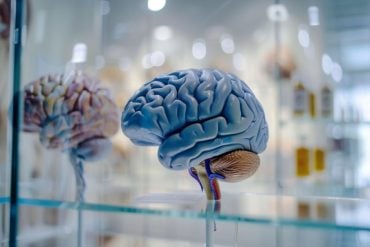Summary: Older adults who face social isolation have a 28% increased risk of developing dementia than those who have frequent social interactions.
Source: Wiley
New research published in the Journal of the American Geriatrics Society indicates that social isolation is common among older U.S. adults, and it increases their likelihood of developing dementia.
Among 5,022 participants of the National Health and Aging Trends Study, a longitudinal and nationally representative study of older adults in the United States, nearly one-quarter (1,172 participants, or 23.3%) were socially isolated.
After adjusting for demographic and health factors, being socially isolated (versus not socially isolated) was associated with a 28% higher risk of developing dementia over 9 years, regardless of race or ethnicity.
“Social connections are increasingly understood as a critical factor for the health of individuals as they age. Our study expands our understanding of the deleterious impact of social isolation on one’s risk for dementia over time,” said corresponding author Thomas K.M. Cudjoe, MD, MPH, of Johns Hopkins University School of Medicine.

“I hope this serves as a wakeup call for all of us to be more thoughtful of the role of social connections on our cognitive health.”
About this dementia research news
Author: Sara Henning-Stout
Source: Wiley
Contact: Sara Henning-Stout – Wiley
Image: The image is in the public domain
Original Research: Open access.
“Social isolation and 9-year dementia risk in community-dwelling Medicare beneficiaries in the United States” by Thomas K.M. Cudjoe et al. Journal of the American Geriatrics Society
Abstract
Social isolation and 9-year dementia risk in community-dwelling Medicare beneficiaries in the United States
Background
Social isolation can influence whether older adults develop dementia. We examine the association between social isolation and incident dementia among older adults in a nationally representative sample of community dwelling older adults in the United States (U.S.). We also investigate whether this association varies by race and ethnicity.
Methods
Data (N = 5022) come from the National Health and Aging Trends Study, a longitudinal and nationally representative cohort of older adults in the U.S. A composite measure of social isolation was used to classify older adults as socially isolated or not socially isolated at baseline. Demographic and health factors were measured at baseline via self-report. Dementia was measured at each round of data collection. Discrete-time proportional hazard time-to-event models were used to assess the association between social isolation and incident dementia over 9 years (2011–2020).
Results
Of 5022 older adults, 1172 (23.3%) were socially isolated, and 3850 (76.7%) were not socially isolated. Adjusting for demographic and health factors, being socially isolated (vs. not socially isolated) was associated with a 1.28 (95% CI: 1.10–1.49) higher hazard of incident dementia over 9 years. There was no statistically significant difference by race and ethnicity.
Conclusion
Social isolation among older adults is associated with greater dementia risk. Elucidating the pathway by which social isolation impacts dementia may offer meaningful insights for the development of novel solutions to prevent or ameliorate dementia across diverse racial and ethnic groups.







